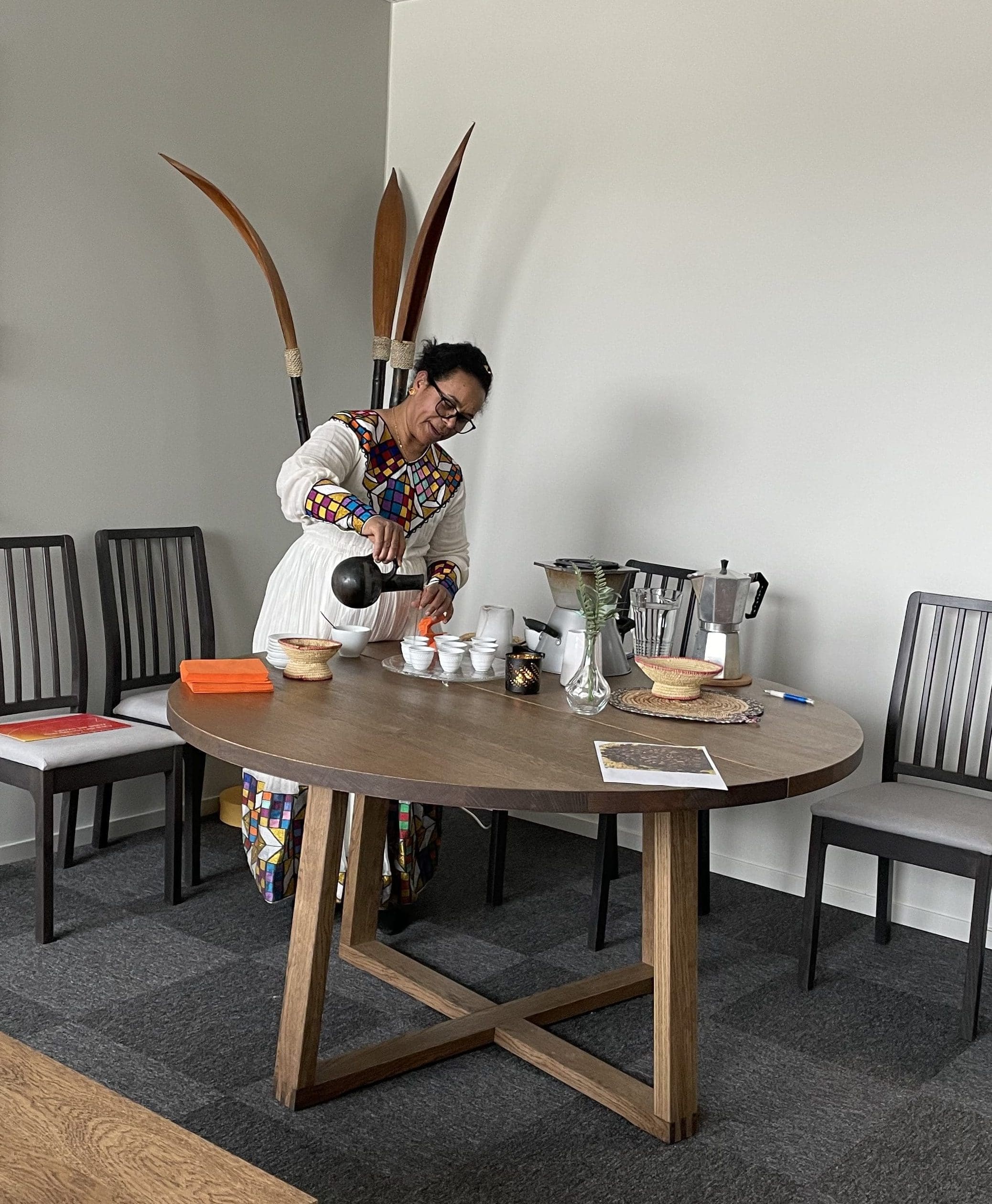As you know, we are interested in coffee, which has led to lots of exciting antics. It can be roasting coffee, coffee tastings, coffee calendars, coffee manikins and all sorts of exciting types of coffee.
Despite our interest, we had completely missed this Eritrean/Ethiopian coffee ceremony. When we saw this in Medborgarskolan's offer, we were of course very curious and signed up immediately.
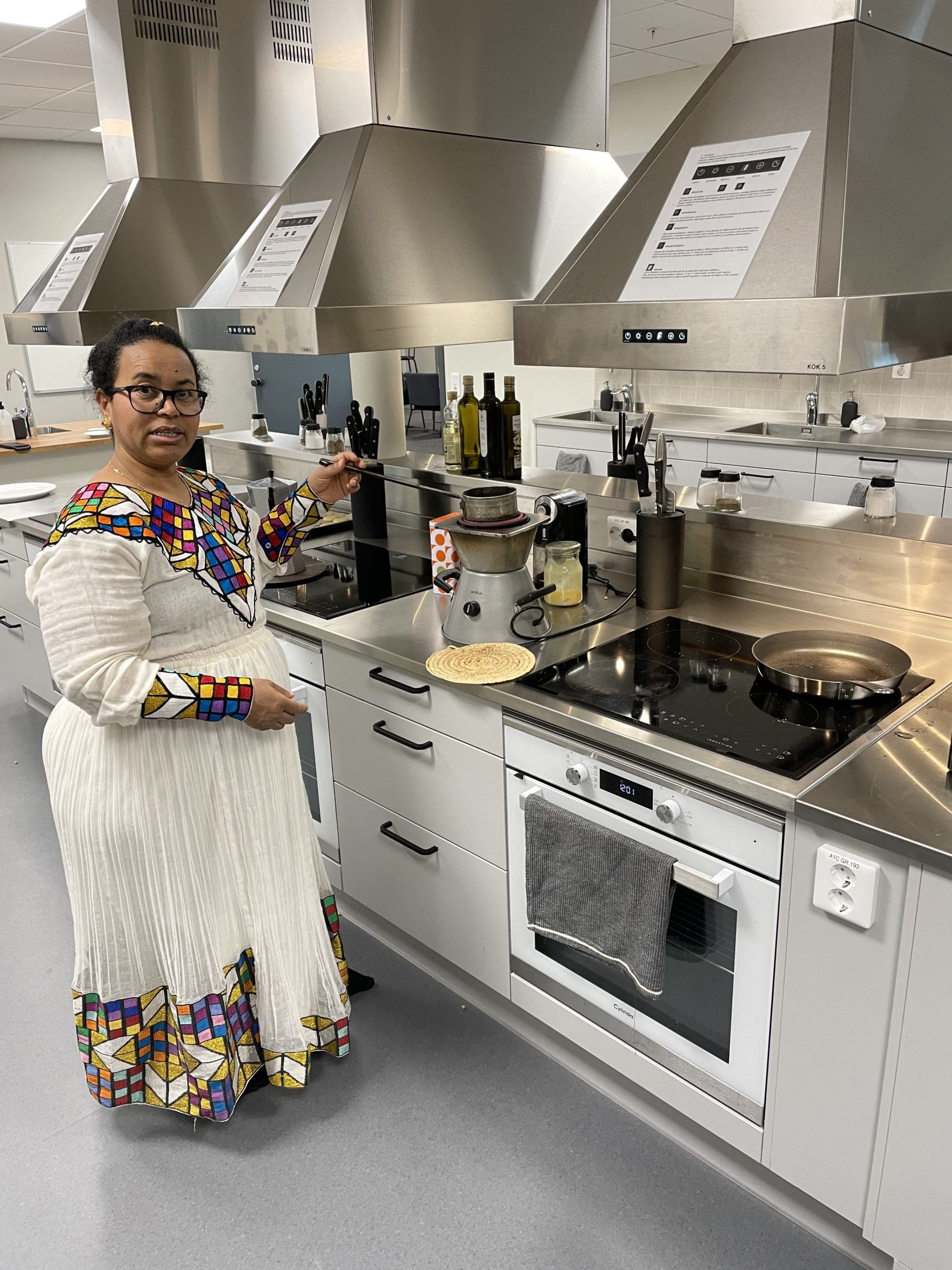
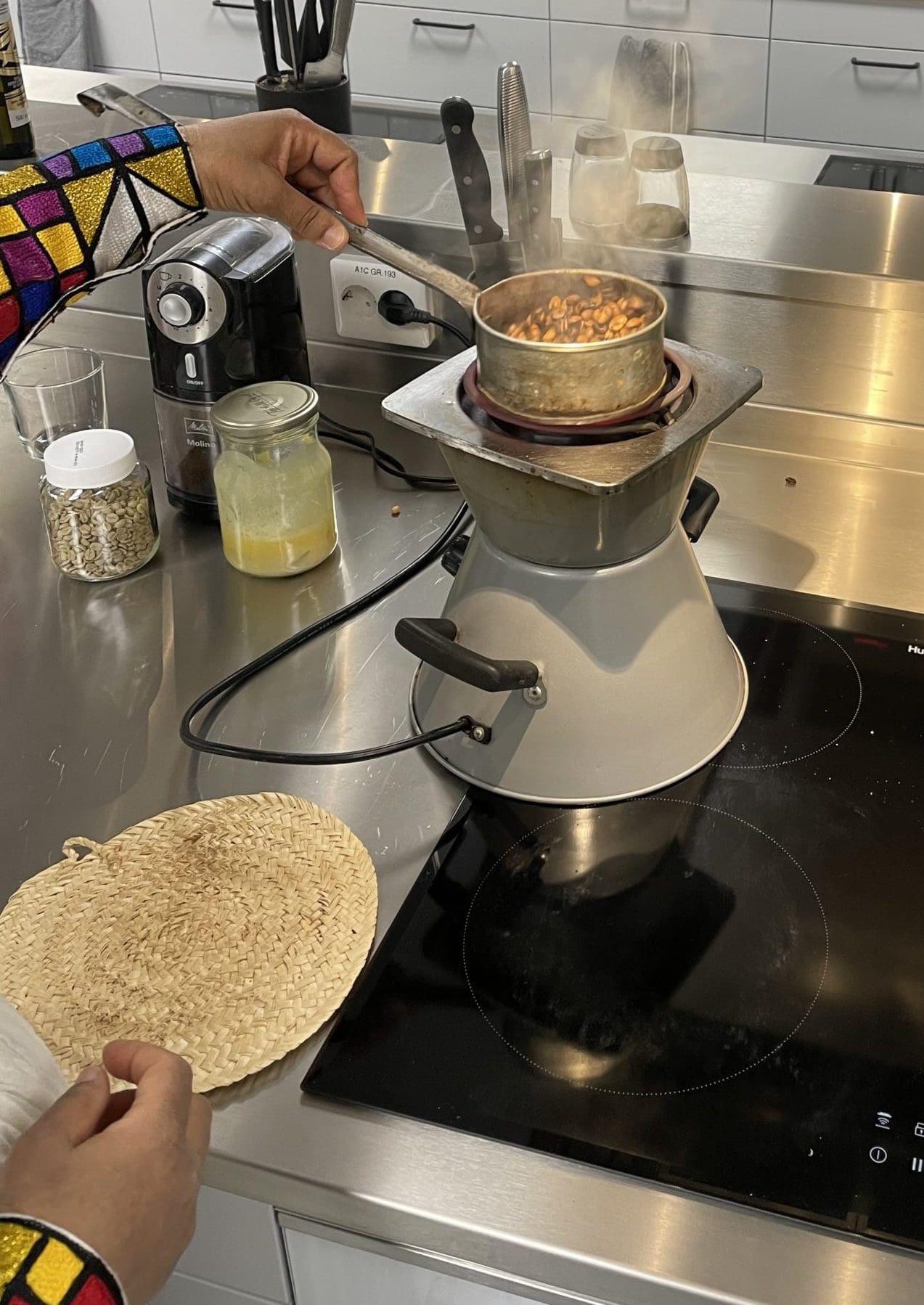
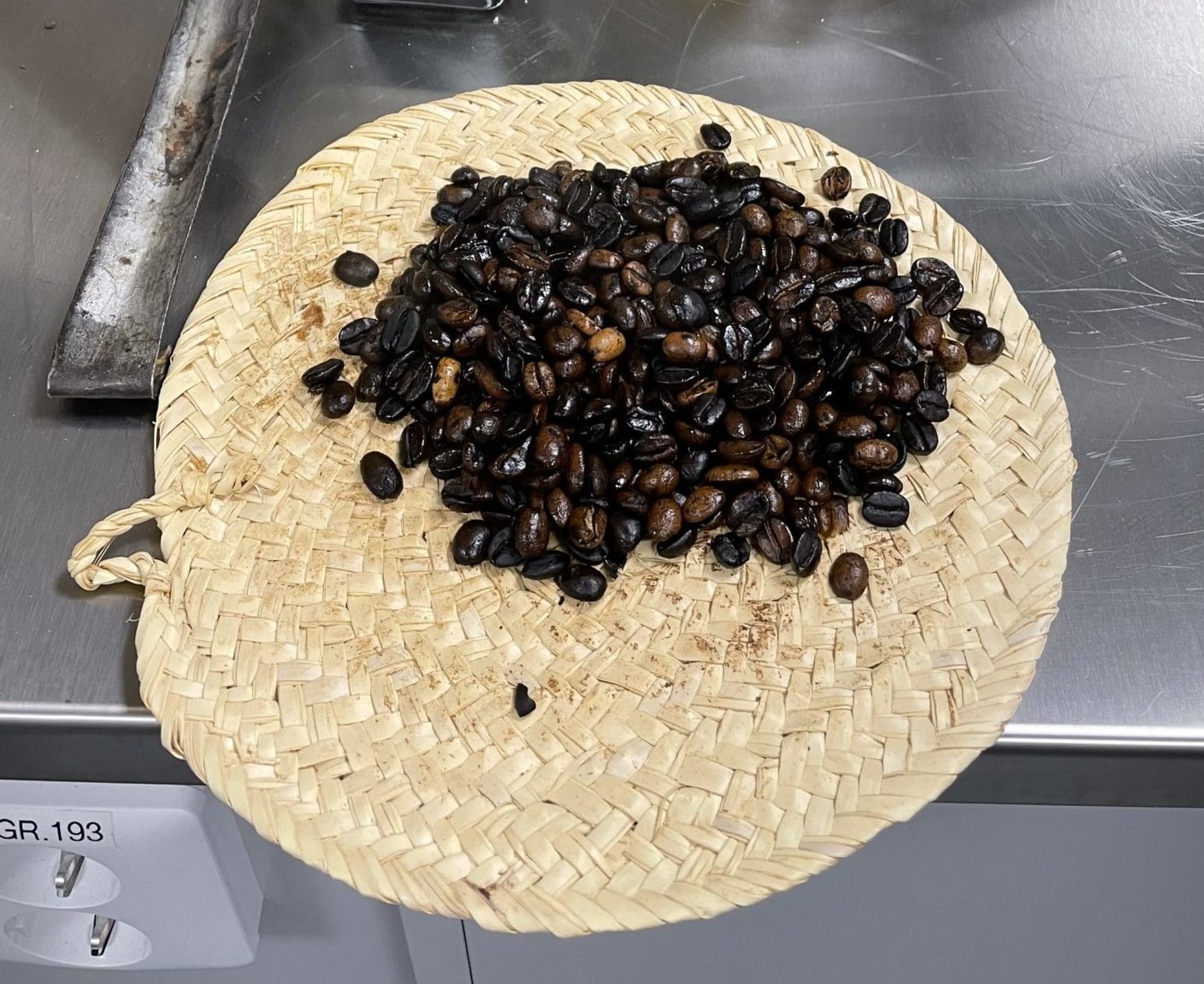
The whole ceremony starts with roasting your nest (coffee). We have previously roasted in an oven or in a converted popcorn machine but we learned that the only way to roast coffee from this part of the world is in a pan. It actually works with any thick-bottomed pan, but traditionally you use a small home-made variant as seen in the picture.
The trick is to constantly rotate the beans by tossing them around in the pan so that they never sit on the hot surface for too long. Normally, this is done on glowing coals, but I suspect that Medborgarskolan's safety representative was not entirely keen on the idea of having glowing coals in the course premises.
Once the beans are the right color, pour them out onto a small mat so they can cool. While they are cooling, it is also important that the host presents the beans to all participants so that they have the chance to smell them and thereby give their tacit approval to proceed to the next step.
Another difference we noted is that the beans are ground while they are still hot rather than after 24 hours of aeration as is usual.
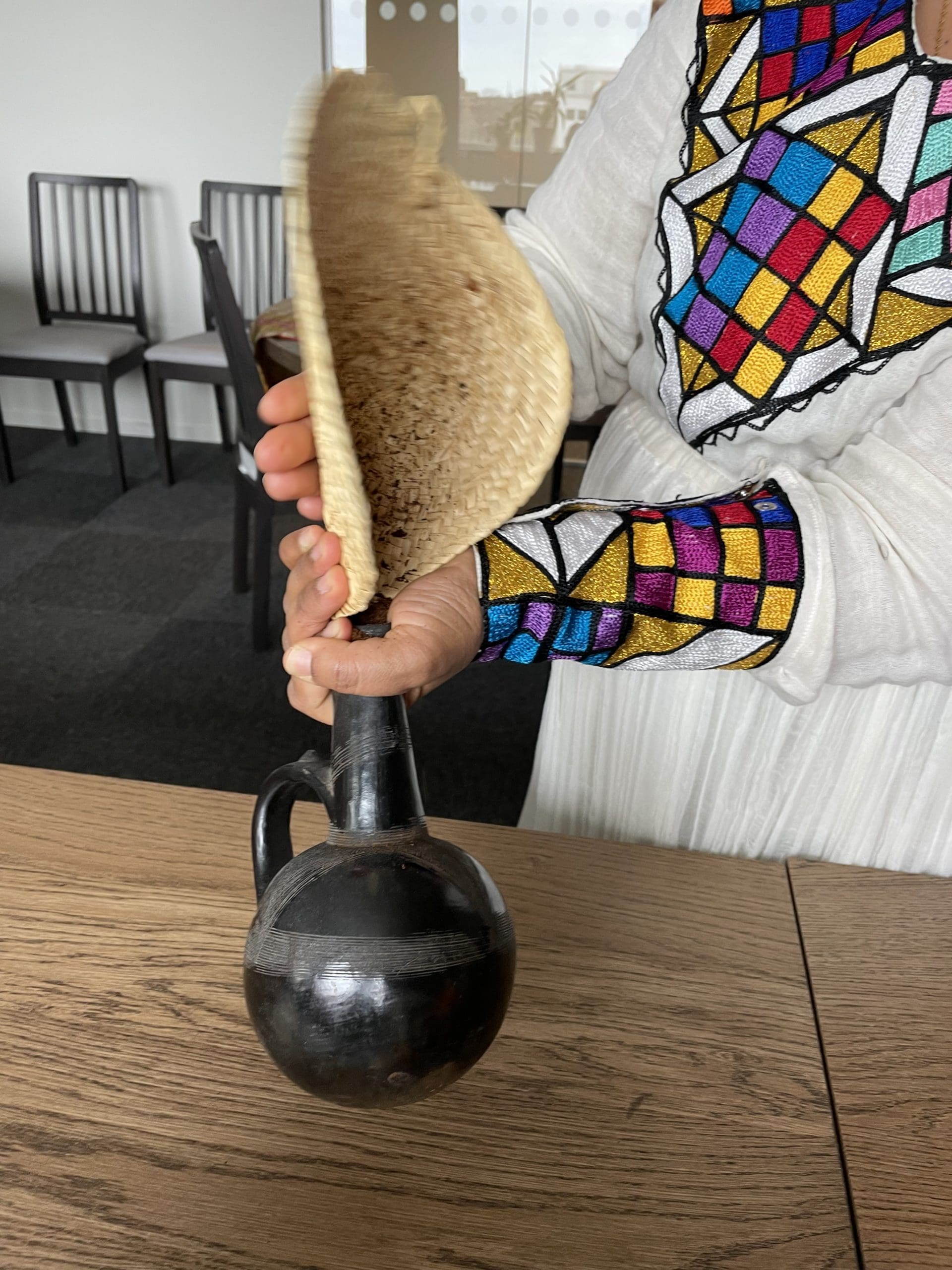
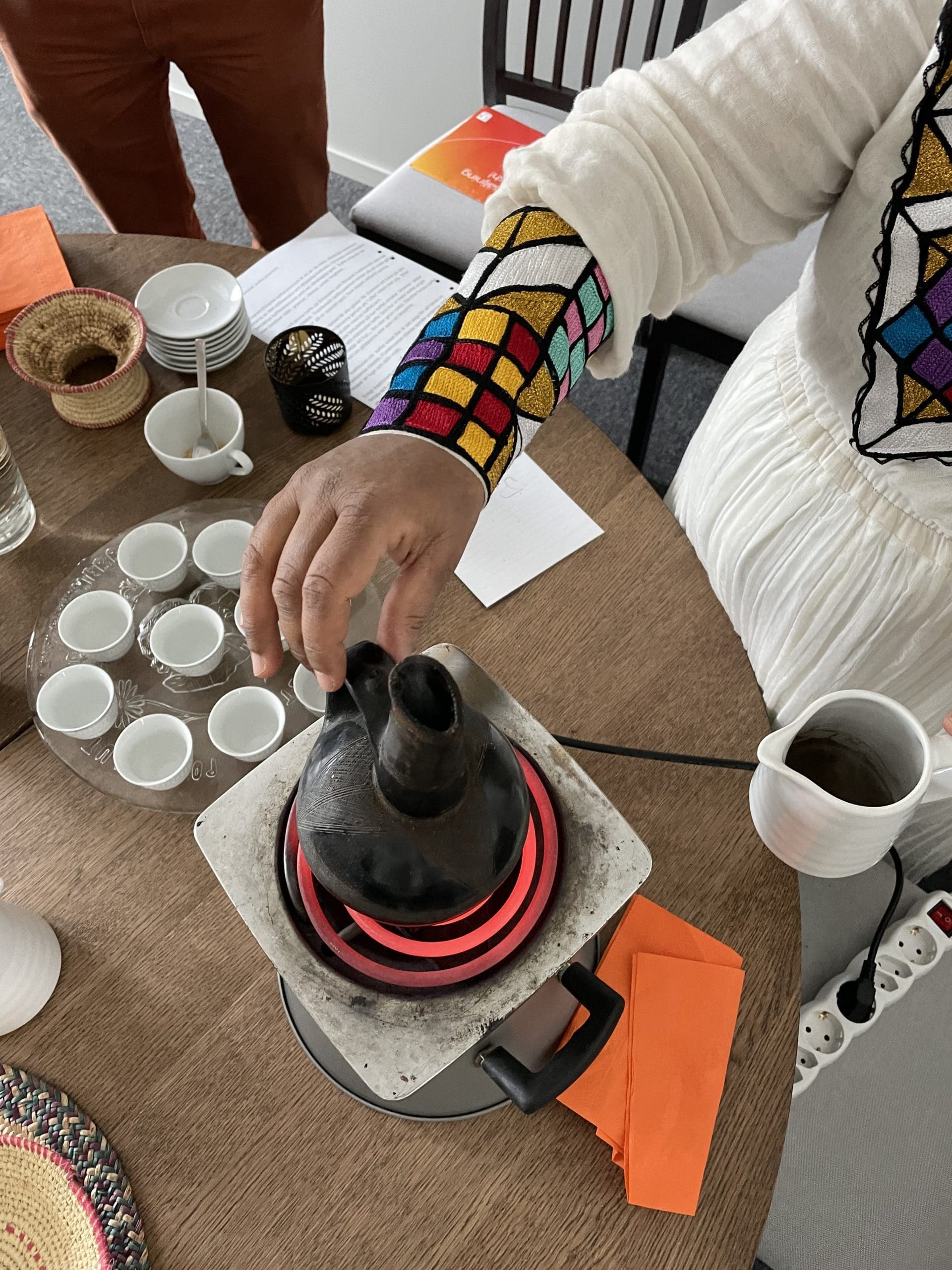
For the actual brewing, a traditional jebena (a kind of clay mug) is used. A large amount of coffee is poured into the narrow spout with the help of the mat and then the mug is placed on the stove. By the way, my wife thought it was very funny when the course leader said that it was not that important about the amount of coffee when I recently argued that we need to buy a more accurate kitchen scale for our own brewing. 🙂
You have to be careful with some kind of container when the water starts to boil, as this leads to the coffee bubbling out through the narrow spout. The coffee is then cooled by pouring it back and forth between two containers and then back into the mug again for a second boil. Then you put some horseradish in the spout and then pour it out into small cups. It is apparently important that you pour all the cups in a single movement without interruption and that you keep the spout at a distance of 30 cm. By tradition, you also always pour an extra cup.
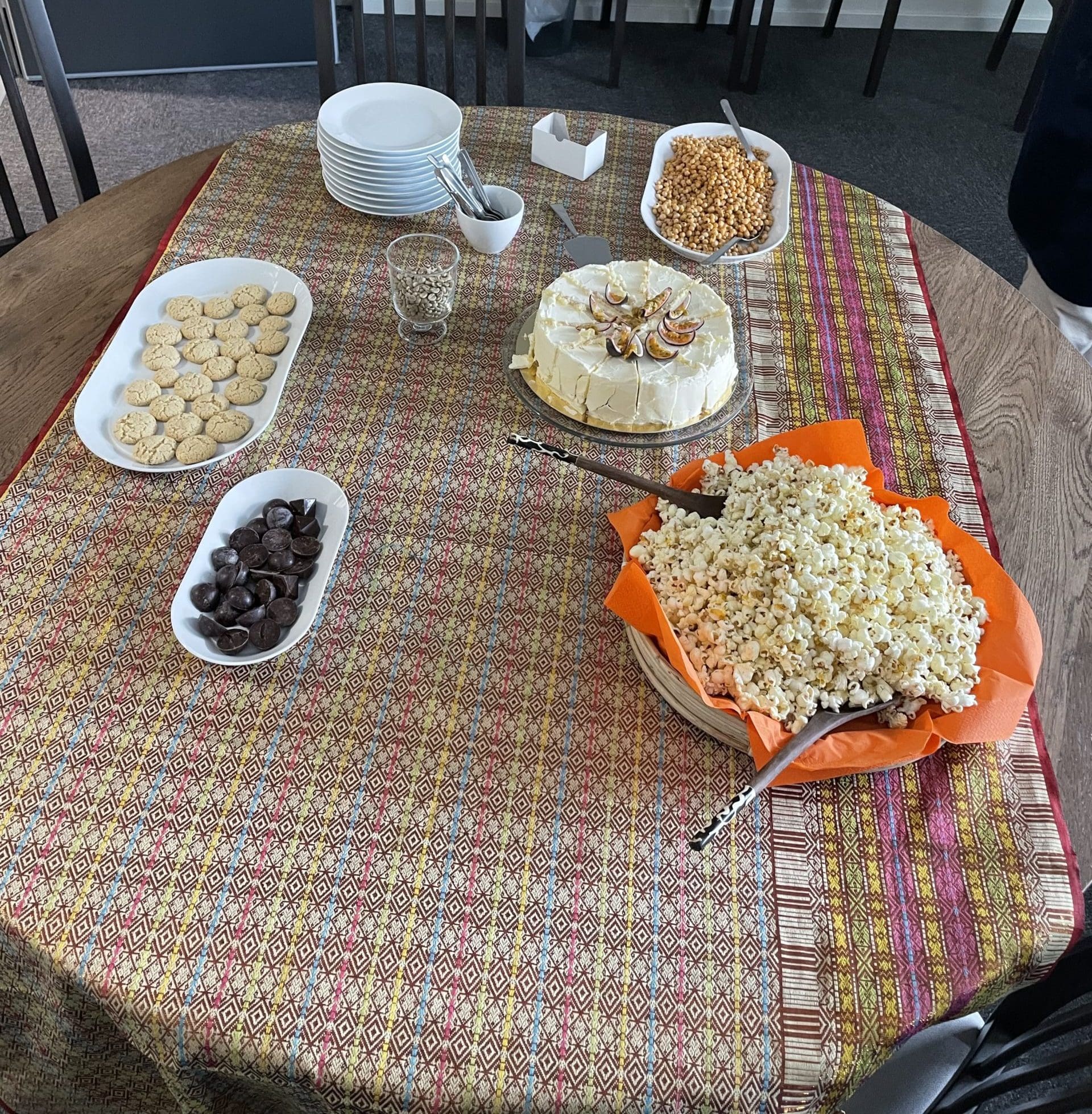
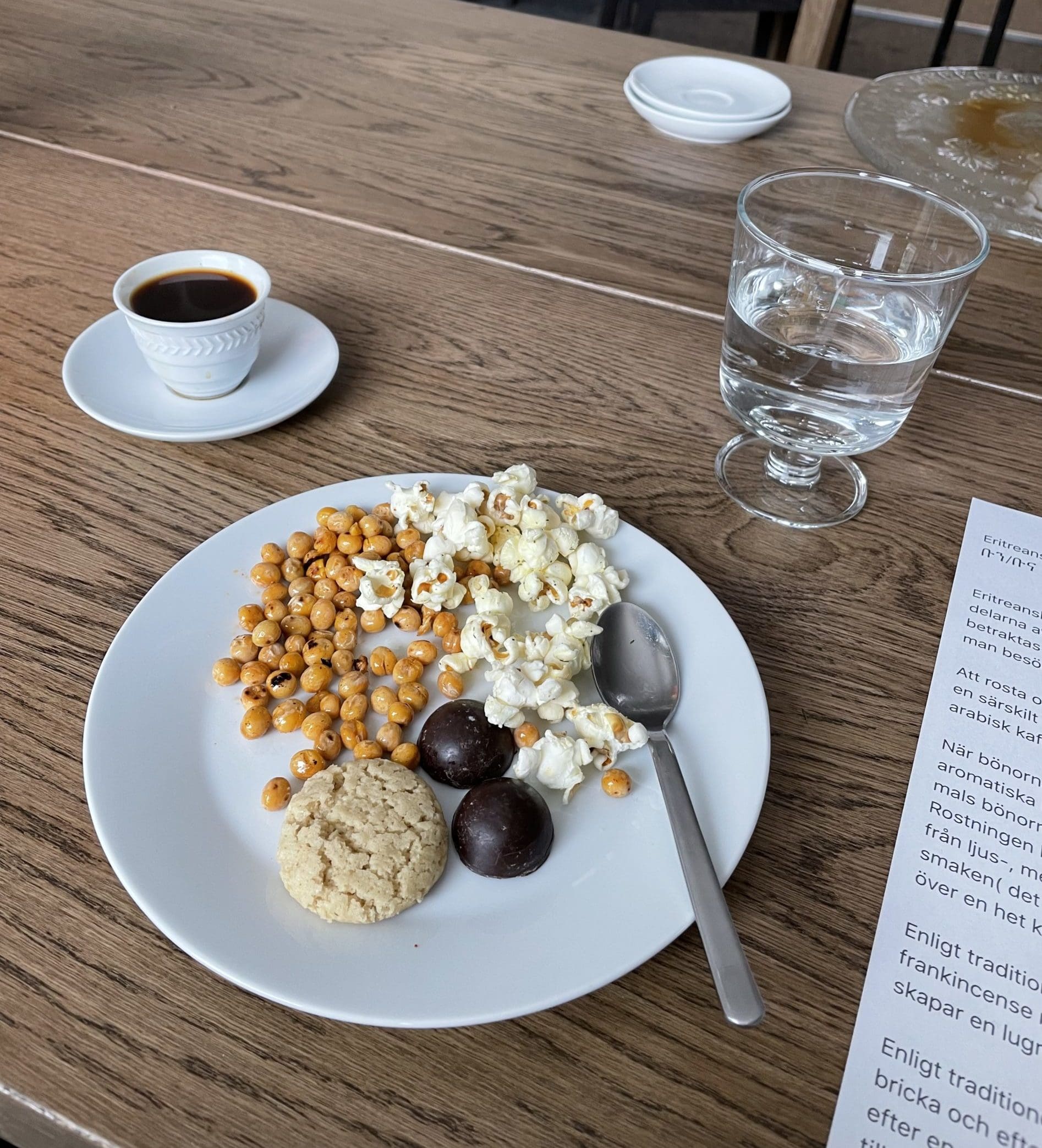
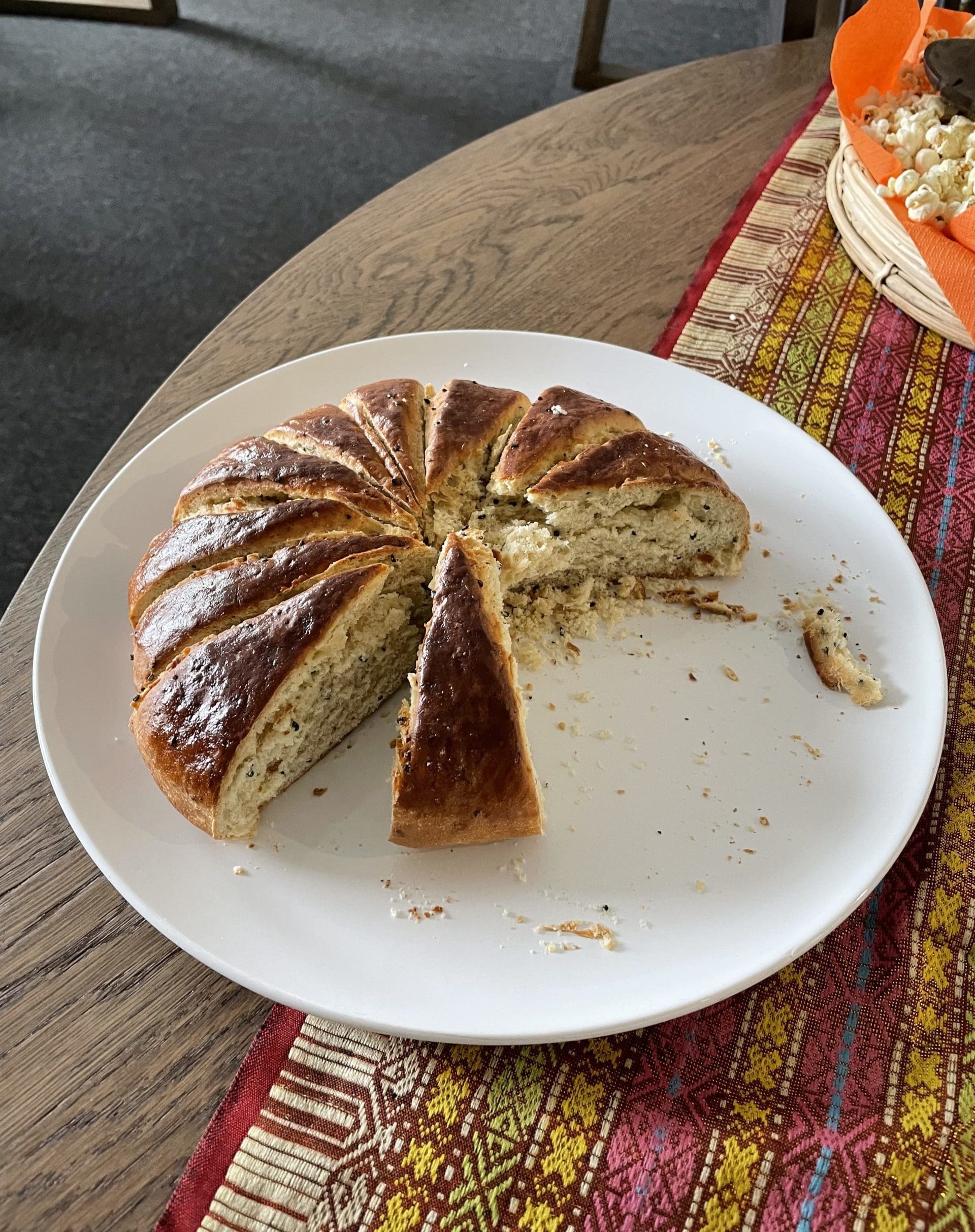
Now for the ceremony itself. When you are invited to this type of event, you enter into a kind of social contract which means that once you have accepted the first cup, you must stay with the host until the third cup is finished. It is considered very impolite to leave before. Between each cup, the brewing procedure is repeated, which means that you have a little time to spare. The first cup is called Awel (first, initial), the second is called Kalay (fellowship) and the third Bereka (blessing). There were also names for the fourth, fifth and sixth cup, but unfortunately we didn't catch them. The same coffee is used for all brews, which in practice means that the first one is quite strong and then it gets weaker and weaker with each cup. The coffee is served with sugar or salt and spices, e.g. ginger, which contributes to the taste experience.
When we had coffee, the course leader, Eden, told us about an interesting discovery. When she first came to Värmland, she discovered that we have an old and, as we might think, unique tradition of using custom flour. The funny thing is that even in Eritrea they have been doing this since time immemorial. Eden went on to tell us about hers catering company which focuses on locally produced ingredients. Among other things, they have won prizes for their Custom Cake.
It was an exciting and different experience. We learned a lot of new things and in addition to the expected and good coffee, we also got the chance to try various exciting pastries.
